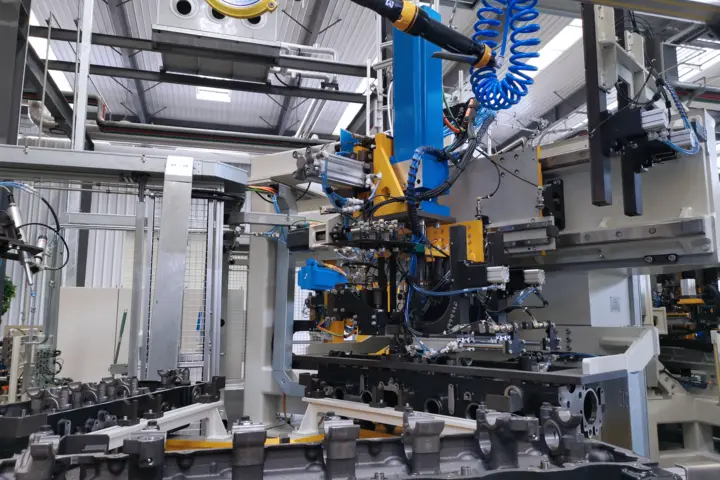Winterthur, October 2021 – Yuchai, the machinery group based in southern China, opts for the NCFN and NCFT servo presses (electromechanical joining systems) from Kistler to manufacture components for engines that comply with the China VI standard. Thanks in part to custom-designed press-fit solutions, Yuchai achieves high product quality, energy efficiency and process transparency.
China's latest exhaust emission standard for commercial vehicles shows that the country is taking a very serious approach to protecting the environment – in spite of the pandemic. 'China VI', which is based on Euro VI in many respects, is being introduced in two stages: the VI-a standard already came into force on 1 July 2020, and the strict VI-b norm will apply from 1 July 2023 onwards – with some drastic goals for reductions of CO2, particulate matter (PM) and oxides of nitrogen (NOx) in the mid double-digit percentage range. Over the long term, this should significantly reduce air pollution due to exhaust gases, especially in the nation's mega-cities. But how will these requirements impact automobile manufacturers and suppliers to the automotive industry? There will certainly be major changes to the way vehicles are designed, manufactured and operated.
Guangxi Yuchai Machinery Co., Ltd. (GYMCL or Yuchai for short), has its headquarters at Yulin in the Guangxi Zhuang Autonomous Region (southern China). Yuchai numbers among those automobile manufacturers who foresaw the transformation at an early stage. Founded in 1951, this corporate group has seven other plants throughout China where it produces engines for trucks, buses and other commercial vehicles. With over 15,000 employees, Yuchai posts annual sales of RMB 40 billion (more than EUR 5 billion). As one of China's market and technology leaders for combustion engines, GYMCL embraces cutting-edge technologies and collaborates with universities across the globe including Brunel University in London, RWTH Aachen University in Germany, and Shanghai Jiao Tong University.








![Sustainable driving – and manufacturing [object Object]](https://kistler.cdn.celum.cloud/SAPCommerce_Document_Preview/961-535e.webp)